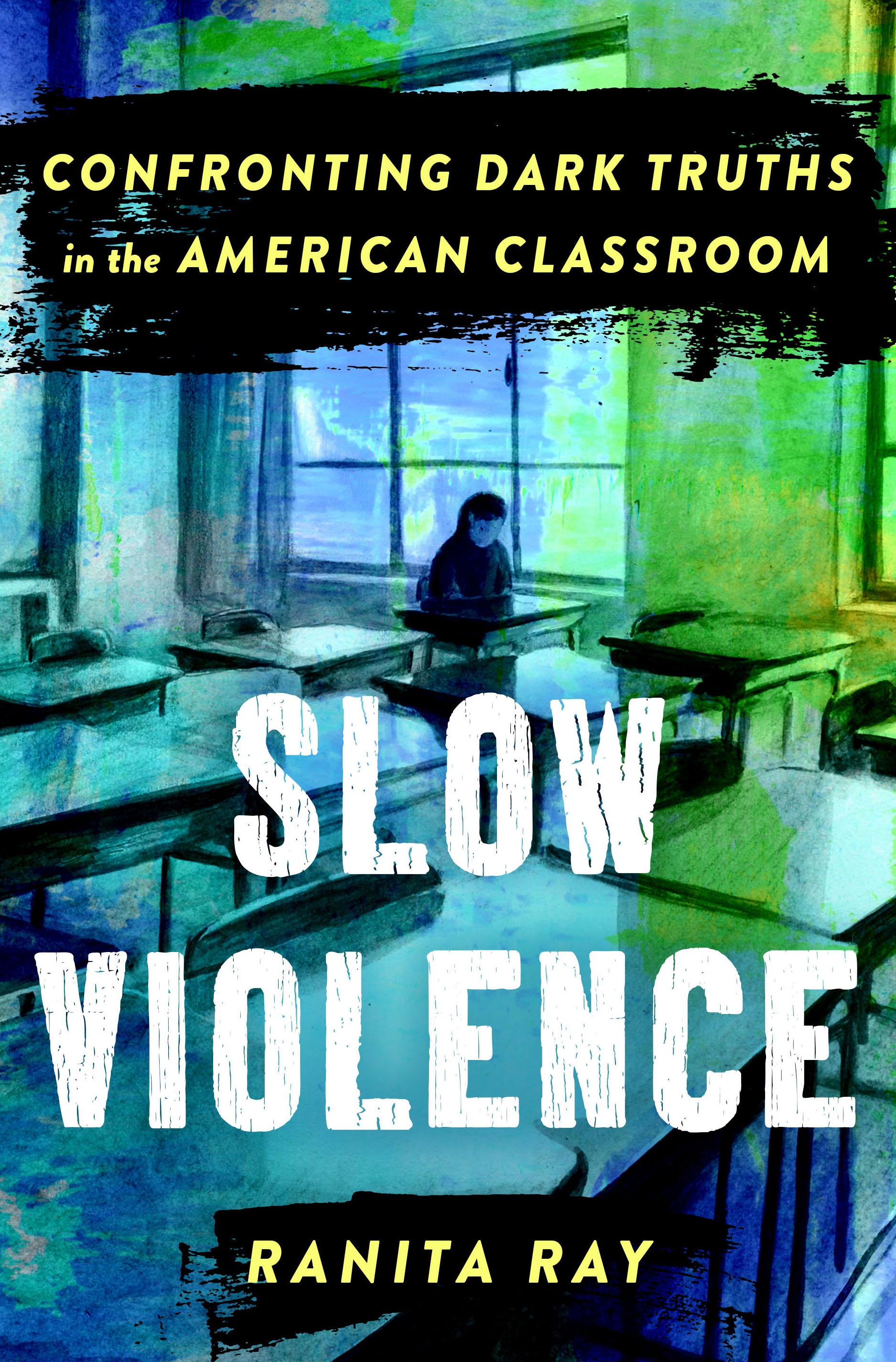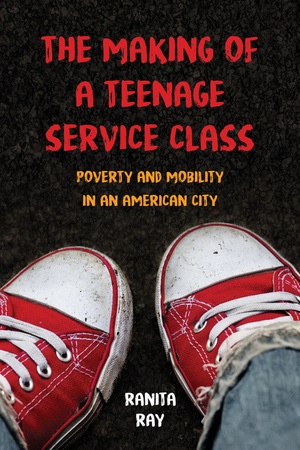Ranita Ray
Associate Professor

Education:
Ph.D. in Sociology, University of Connecticut (2013)
Research Interests:
Race and Ethnicity, Education, Gender, Inequality
Children and YouthBooks:

Slow Violence: Confronting Dark Truths in the American Classroom
- Shortlisted for Columbia Journalism School and Nieman Foundation for Journalism at Harvard 's 2024 Lukas Work-in-Progress Prize
—Publishers Weekly
—Kirkus Reviews
"In Slow Violence, Ranita Ray manages to artfully and intellectually destroy the casual deployment of classroom "microaggressions" and "benevolent racism" opting instead to situate the brutality of our classrooms as slow, absolutely destructive violence. The book is a blending of what's possible when tenacious genius cultural workers take our educational past and future seriously."
—Kiese Laymon, Author of Heavy: An American Memoir
"At a moment when diversity, equity and inclusion are under attack and re-segregation is underway in American institutions, Ranita Ray’s urgently needed book critically examines an overworked, majority white teaching force from a rarely heard perspective: that of the majority non-white school children who fill America's (sometimes windowless) classrooms. With pathos, care, and the righteous fury its subject deserves, Slow Violence will move readers to tears and, hopefully, to action."
—Steven W. Thrasher, author, The Viral Underclass and former education reporter for the Village Voice
"A beautiful and aching book—at once a careful meditation on the hope we find in the eyes of our nation’s most vulnerable children, and a searing indictment of our failure to recognize their humanity...Ray shows us, in masterful strokes and through the eyes of children she followed, that teaching is a job, and that teachers are people who bring their gifts and biases into the classroom. [It] will change how you think about education."
—Reuben Jonathan Miller, author of Halfway Home
"Gripping and powerful...Ray's clear-eyed and full-hearted analysis shows how the precarity of public education—particularly in communities marginalized by systemic racism and economic injustice—can push teachers to punch down on kids and parents who are even more powerless than they are.”
—Jessica Calarco, author of Holding It Together

The Making of a Teenage Service Class
Winner of the 2018 C. Wright Mills Award from the Society for the Study of Social Problems
Winner of the 2020 Distinguished Scholarship Award from the Pacific Sociological Association
Honorable Mention, 2019 Distinguished Contribution to Scholarship Book Award from the American Sociological Association, Section on Race, Gender, and Class
Finalist, 2020. Bourdieu Best Book Award from the American Sociological Association, Section on the Sociology of Education
In this book Ray challenges common wisdom that focusing on "risk behaviors" such as drug use, gangs, violence, and teen parenthood is the key to ameliorating poverty in Black and brown communities. Instead, she shows how this strategy unleashes racialized class violence on Black and brown youth. Ray recounts the three years she spent with sixteen economically marginalized young Black and brown people, documenting their struggles to balance school and work while keeping commitments to family, friends, and lovers. Hunger, homelessness, untreated illnesses, and long hours spent traveling between work, school, and home disrupted their dreams of upward mobility. While families, schools, nonprofit organizations, academics, and policy makers stress risk behaviors in their efforts to end the cycle of racialized poverty, Ray argues that this strategy is itself racist and reproduces racialized class hierarchies.
Available for purchase here.
Recent/Select Publications:
Ray, Ranita. 2023. “Race-Conscious Racism: Alibis for Racial Harm in the Classroom.” Social Problems 70 (3): 682–697.
- 2025 American Sociological Association, Oliver Cromwell Cox Article Award, Section on Racial and Ethnic Minorities Award.
Ray, Ranita. 2022. “School as a Hostile Institution: How Black and Immigrant Girls of Color Experience the Classroom." Gender & Society 36(1): 88-111.
- 2023 American Sociological Association, The Section on the Sociology of Sex and Gender’s Distinguished Article Award.
- 2023 Society for the Study of Social Problems, Arlene Kaplan Daniels Paper Award.
- 2023 American Sociological Association, The Section on Race, Gender, and Class’s Distinguished Contribution to Scholarship Article Award. Honorable Mention.
Ray, Ranita. 2022. It Never Seems to Be a Good Time to Talk About Teachers’ Racism Educators are under siege for teaching “CRT.” But curriculum isn’t everything. Slate. March 1st
Ray, Ranita and Korey Tillman. 2019. “Envisioning a Feminist Urban Ethnography: Structure, Culture, and New Directions in Poverty Studies,” Sociology Compass 13(1): 1-10
Ray, Ranita. 2018. “’Identity of Distance’: How Economically Marginalized Black and Latina Women Navigate Risk Discourse and Employ Feminist Ideals,” Social Problems 65(4): 456–472.
- 2019 American Sociological Association Race, Gender, and Class Section Best Article Award.
- 2020 Society for the Study of Social Problems, Arlene Kaplan Daniels Paper Award Honorable Mention.
Courses:
Reproductive Justice
Sociological Theory
Social Inequality and Power
Ethnography
